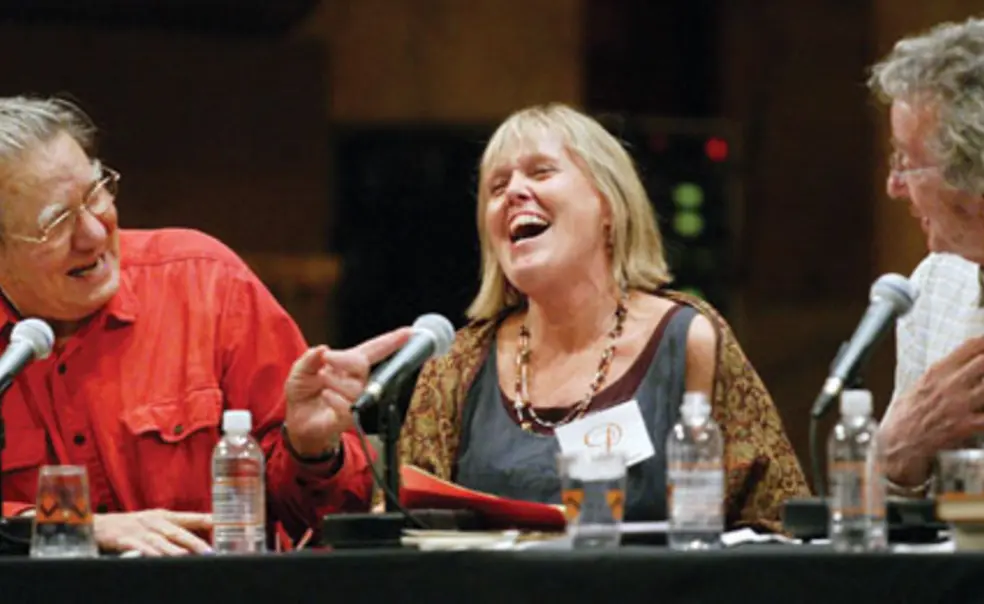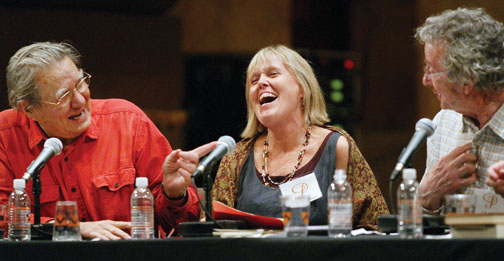Poetry lovers converge on Princeton for festival
Seamus Heaney, the Nobel Prize-winning Irish poet, forgot his glasses for one of his readings at Princeton’s inaugural poetry festival. They quickly were retrieved, but it wouldn’t have mattered if he had lost his spectacles. He recited the first few poems — about his mother, his homeland, and violence in Northern Ireland — looking out into the rapt audience, barely glancing at the paper on the podium. He knew the lines by heart.
One of the event’s headliners, along with American Pulitzer Prize winner John Ashbery, Heaney fed the hundreds of poetry lovers in attendance what they came for — the chance to hear one of their favorite wordsmiths inflect his own poetry and provide insight into his creative process.
Poetry usually is read alone. But for two days in late April that activity became a public event as 15 poets from the United States and abroad, both seasoned writers such as Pulitzer Prize winner Galway Kinnell ’48 and Lucille Clifton and younger voices such as Tina Chang and Troy Jollimore *99, converged in Alexander Hall’s Richardson Auditorium for readings and panel discussions on the future audience for poetry and the challenges of translation.
The brainchild of Paul Muldoon, the chairman of the Lewis Center for the Arts and a Pulitzer recipient himself, the festival was an effort to “honor [the University’s] relationship with poetry” and make great poetry available to the community beyond Princeton students and professors, says Muldoon. Among the audience members were local high school students and teachers. A number of the poets explained their themes and events that sparked their writings.
Muldoon plans to hold the poetry festival every other year. With the festival, he says, “The words ‘Princeton’ and ‘poetry’ will continue to have a special connection.”
The University has been home to a long line of poets who have taught and studied on campus, including W.S. Merwin ’48 and John Berryman. Next fall, the creative-writing program is celebrating its 70th anniversary with a series of readings and events.
The inauguration of Princeton’s poetry festival coincided with the recent announcement that the Dodge Poetry Festival, a biennial event in New Jersey since 1986 that attracted thousands, will not be held in 2010 for budgetary reasons and might not resume. “People tend to insist that poetry is very much a minority sport,” says Muldoon, but the number of people who attended the Dodge Festival suggested otherwise. Princeton’s festival is a “small thing compared to what they were doing,” he says, noting that Princeton’s festival was not designed to replace the Dodge Festival, but to complement it.













No responses yet